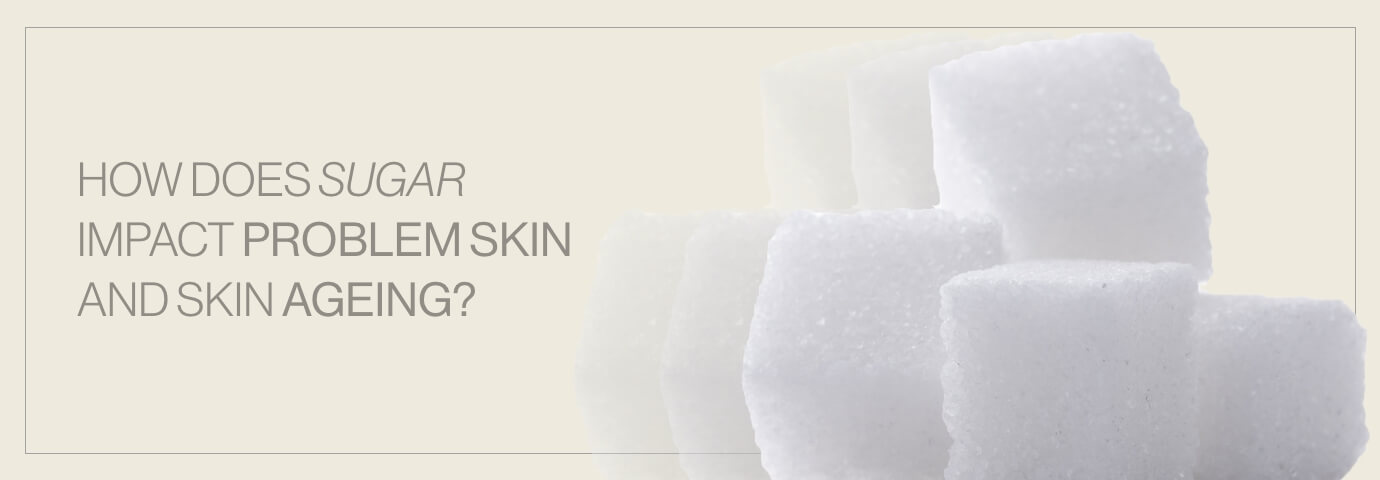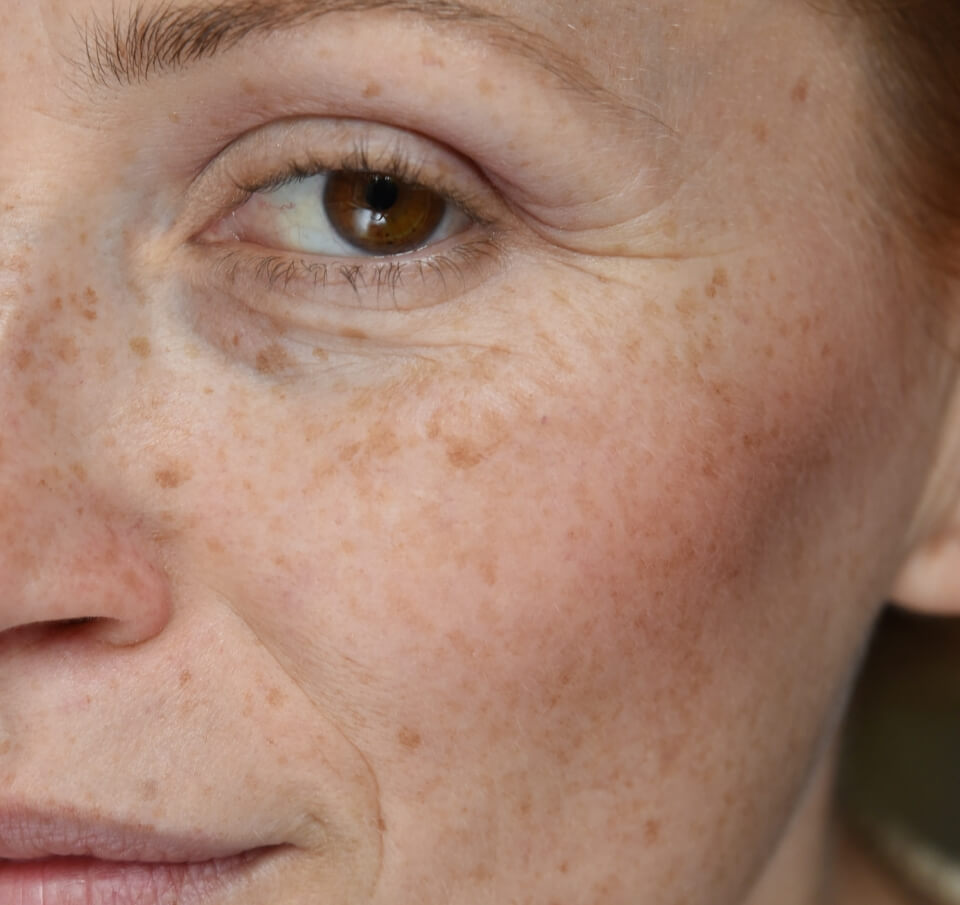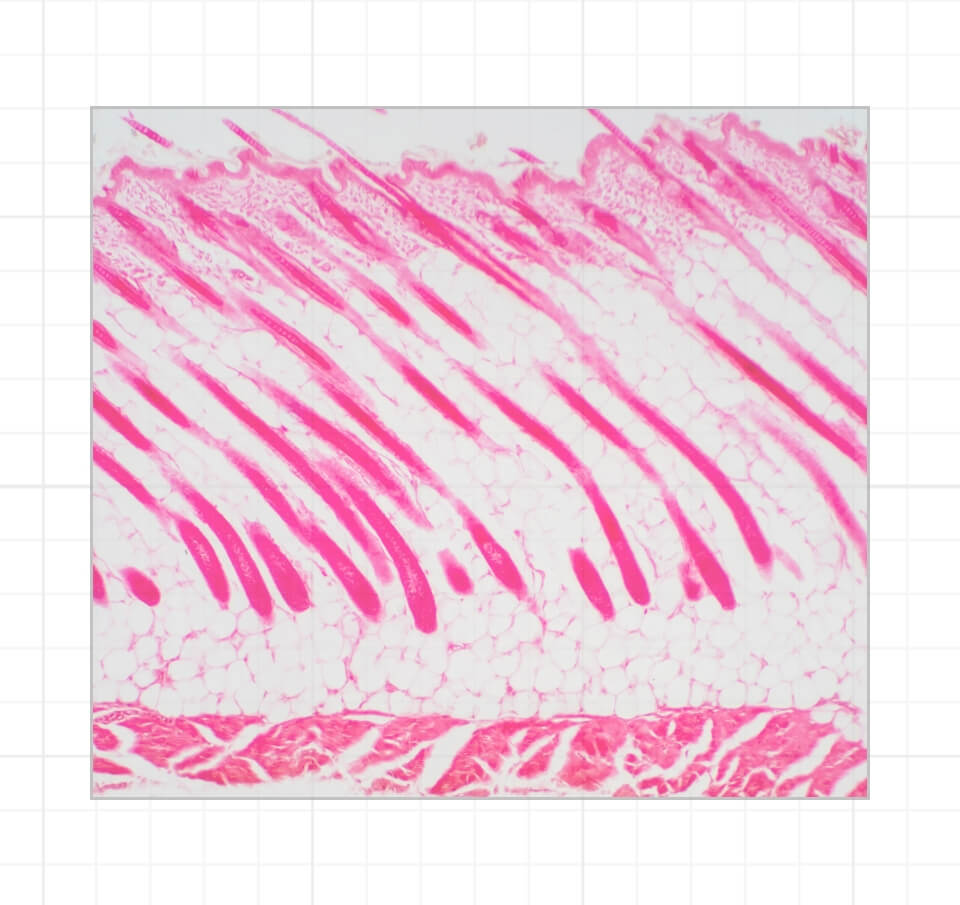How does sugar impact problem skin and skin ageing

Most of us love a sweet treat – but in excess, sugar has the power to impact our skin. Our cells need sugar (glucose) to produce energy but when we over indulge in sugary foods, any excess sugar in the blood will trigger biochemical processes, one of which is glycation.
What is glycation?
If you think about when you toast bread, the sugar molecules in the foods bond to protein molecules. Now in cooking you call this caramelisation BUT when sugar binds to protein in the skin it’s called glycation. When glycation occurs, collagen and elastin (required by the skin to keep it youthful-looking) become stiffer, more fragile and break easily.

How does sugar impact skin ageing?
Excess sugar contributes to the formation of AGEs (Advanced Glycation End products) which age your skin. They promote the breakdown of collagen and lead to signs of premature ageing. When collagen and elastin become damaged, the skin loses its firmness and starts sagging and forming wrinkles.
AGEs can increase oxidative stress and cause increased inflammation, all of which can speed up the signs of ageing such as wrinkles (especially around the sensitive eye area), dullness and sagging skin. High sugar levels can make it harder for vitamin C (a key vitamin in collagen formation) to enter our cells.
How does sugar impact problem skin?
Sugar encourages the growth of unfriendly bacteria, leading to an imbalance in the gut microbiome. When the gut microbiome is unbalanced, it can lead to poor skin health and problem skin. Glucose metabolism requires B vitamins, magnesium, zinc, and omega-3. Studies show people who have high sugar diets often have deficiencies in these nutrients which we know are key for skin health.
In addition to this, sugar can also trigger a rise in insulin, leading to an increase in inflammation and higher sebum levels, all of which can lead to blemishes and make problem skin worse.
Evidence has shown that high glycaemic diets (which consist of foods that quickly raise blood sugar) are linked to a higher risk for problem skin, while low glycaemic diets (consisting of foods that have a low impact on blood sugar) are associated with a reduced risk for problem skin.
Sources:
- Effects of Diet on Acne and Its Response to Treatment. National Library of Medicine. Hilary Baldwin and Jerry Tan.
- Kim CS, Park S, Kim J. The role of glycation in the pathogenesis of aging and its prevention through herbal products and physical exercise. J Exerc Nutrition Biochem. 2017 Sep 30;21(3):55-61.
- Dietary Sugars and Endogenous Formation of Advanced Glycation End products: Emerging Mechanisms of Disease. National Library of Medicine. Manuela Aragno, Raffaella Mastrocola.
- Skin Ageing by Glycation, National Library of Medicine. Herve Pageon, Helene Zucchi, Françoise Rousset, Vincent M Monnier, Daniel Asselineau
